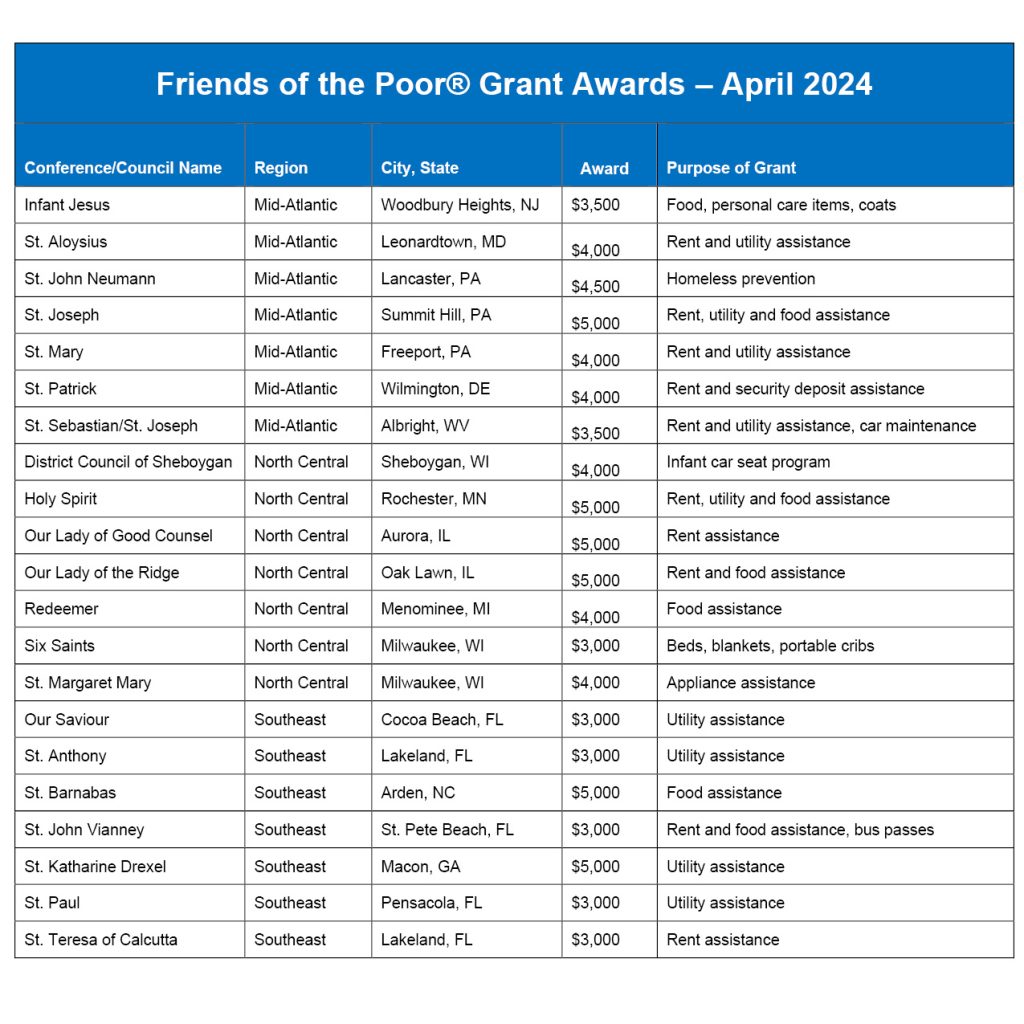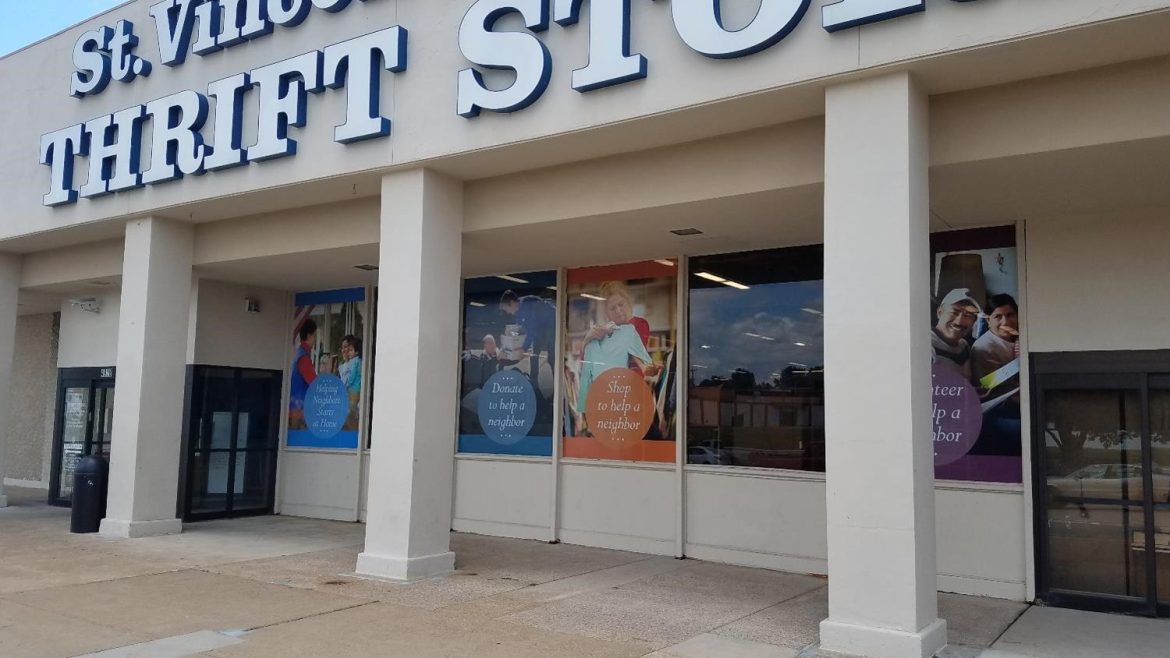Q: Some of our Conferences have pantries where people come in and pick up food on a regular basis. Other Conferences take food to the homes during a home visit. Other Conferences deliver food as needed and not part of a true home visit. In the past, our reporting of these activities on the “Special Works” form has been somewhat inconsistent. We’d appreciate any clarification.
A: Anytime a Vincentian takes food to a family it is not a special work, it’s part of what we do with home visits; we take food with us or deliver groceries on home visits. However, if there is a pantry operation or onsite food distribution center where food is picked up then it is a special work. These are two different services provided.
Q: I know that spirituality, service, and friendship are the essential elements of the Society. Is service to our friends in need the most important of the three?
A: The ultimate goal of our existence is to grow in holiness and spend eternity with God; so, spirituality is our highest goal in all things. That being said, we are not strictly a spiritual organization, we are not strictly a social organization, and we are not strictly a service organization. There must be a balance between the three essential elements of the Society. Like a three-legged stool all are needed for good balance.
En Español
P: Algunas de nuestras Conferencias tienen despensas donde la gente viene y entra para recoger alimentos con regularidad. Otras Conferencias llevan comida a los hogares durante una visita domiciliaria. Otras Conferencias entregan comida según sea necesario y no como parte de una verdadera visita domiciliaria. En el pasado, nuestros informes de estas actividades en el formulario de “Trabajos Especiales” han sido un tanto inconsistentes. Agradeceríamos cualquier aclaración.
R: Cada vez que un Vicentino lleva comida a una familia no es un trabajo especial, es parte de lo que hacemos con las visitas domiciliarias; llevamos comida con nosotros o entregamos comestibles en las visitas domiciliarias. Sin embargo, si hay una operación de despensa o un centro de distribución de alimentos en el lugar donde se recogen los alimentos, entonces se trata de un trabajo especial. Estos son dos servicios diferentes que se brindan.
P: Sé que la espiritualidad, el servicio y la amistad son los elementos esenciales de la Sociedad. ¿Es el servicio a nuestros amigos en necesidad el más importante de los tres?
A: El objetivo último de nuestra existencia es crecer en santidad y pasar la eternidad con Dios; por lo tanto, la espiritualidad es nuestro objetivo principal en todas las cosas. Dicho esto, no somos estrictamente una organización espiritual, no somos estrictamente una organización social, ni somos estrictamente una organización de servicio. Debe haber un equilibrio entre los tres elementos esenciales de la Sociedad. Como un banco de tres patas, todos son necesarios para un buen equilibrio.






